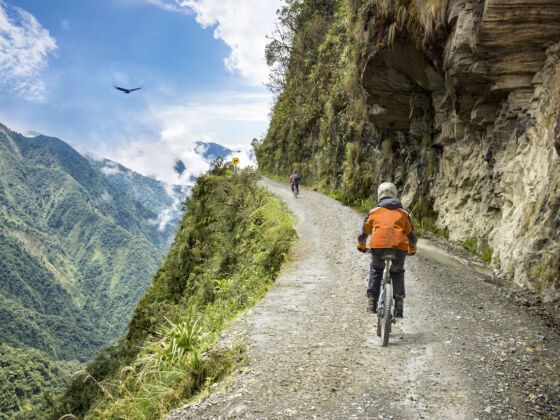Don George has said that a good travel article is like a cinema of the mind, where the words fall away and start a movie in your head. The lede engages the reader, seduces him or her into vicariously sharing and experiencing the writer’s journey.


Such a lede launches “The Telltale Scribes of Timbuktu,” a Lowell Thomas award-winning1 story by Peter Gwin in National Geographic. A section subtitled “The Salt Merchant” begins:
In the ancient caravan city of Timbuktu, many nights before I encountered the bibliophile or the marabout, or comforted the Green Beret’s girlfriend, I was summoned to a rooftop to meet the salt merchant.
I was curious enough to read on, to discover who the salt merchant was and why the Green Beret’s girlfriend needed comforting; I was even interested in learning about the writer, who would reveal himself, not in a narcissistic way, but through the emotional content of the story.
The journey through a good travel story has emotional content, an element of generosity; it involves all the senses. These excerpts are from another Lowell Thomas winner, “Heart of Dark Chocolate,” by Rowan Jacobsen for Outside magazine. It’s about a rare and expensive chocolate made from an ancient strain of wild cacao found in the Bolivian rainforest:
They called it Cru Sauvage. The impeccable Swiss packaging alluded to its aboriginal provenance, and inside were two bars wrapped in golden foil, 68 percent cacao. I’d paid $13 (plus shipping!) for these skinny little planks of chocolate, just 100 grams’ worth of ‘Wild Vintage.’ That’s $60 a pound. After savaging its wrapper, I placed a square of the dusky stuff on my tongue and closed my eyes….
It hit me with an intense nuttiness, but without the slightest hint of bitterness, a combination I’d never experienced. Aromatics burst in my sinuses. Citrus and vanilla. The flavor dove into a deep, rich place, and then, just as I thought I had a handle on it, the bottom fell out and it dove some more. That might sound ridiculous, but I’ve spent an inordinate amount of time ‘researching’ the best chocolate in the world, geeking out on it like the most obnoxious sommelier, and this was something entirely new.
Jacobsen has painted clear, vivid word pictures, created a sense of place by engaging several senses and not just the eyes.
The sense of smell, though underused, can be very effective: “The stench of fresh vomit permeated the men’s room of the worst dive bar in Marseilles.”
Words can also create a mood: “After dark, the souk can feel sinister and forbidding.”
Once a satisfying story has been told, it needs an ending, ideally, one that circles around to the beginning and gracefully achieves a satisfying sense of closure. If a good travel story is like a cinema of the mind, then whoever heard of a movie that had no ending? Yet here is where so many writers, even talented ones, occasionally fall down. The most common “sin” goes something like this: “I had such a glorious time in Aruba that I can’t wait to return.” Or: “I didn’t get a chance to visit the (fill-in-the-blank) during this trip, but I will definitely include it next time.”
How much richer and more graceful are the closing sentences to David Farley’s story (in Afar) titled “Spin the Globe: A Trip to the Witch Doctor in La Paz, Bolivia.” The story began: “God seemed everywhere in La Paz. Many gods, actually.”
And closed: “Scotty and I stood up, and I peeled back the door of the tent. A flash of sunlight hit me in the face and we walked out bravely, into the light, into this city of the gods.”
A perfect cinematic image that ended the journey I had happily taken with the writer. 1The Lowell Thomas Awards, named for the acclaimed journalist who explored the world, are given by the SATW Foundation in recognition of outstanding work in the field of travel journalism.